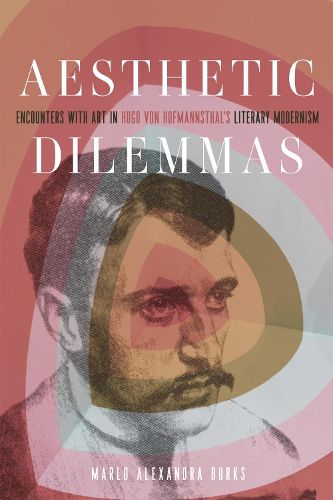Readings Newsletter
Become a Readings Member to make your shopping experience even easier.
Sign in or sign up for free!
You’re not far away from qualifying for FREE standard shipping within Australia
You’ve qualified for FREE standard shipping within Australia
The cart is loading…






Hugo von Hofmannsthal (1874-1929) is frequently portrayed in cultural histories as an aloof writer with a precious style, out of step with modern sensibilities. In Aesthetic Dilemmas Marlo Burks reassesses Hofmannsthal's oeuvre and its place in twentieth-century European modernist aesthetics. Through an examination of a diverse range of Hofmannsthal's ekphrastic writings - including poetry, essays, opera libretti, fiction, and letters - Burks argues that Hofmannsthal's work aims to engage the consciousness and sensibility of readers, listeners, and viewers by way of dynamic encounters with works of art. Aesthetic Dilemmas thereby corrects a long-standing, flawed characterization of Hofmannsthal's work as escapist and demonstrates how his place in the Modernist movement has been misunderstood in most scholarship. The book is in dialogue with a broad range of critical voices and treats a variety of themes, from aestheticism to money, interpersonal relationships, suffering, poverty, labour, futurity, legacy, and hope. Translating numerous passages into English for the first time, Aesthetic Dilemmas gives English-speaking readers the chance to evaluate Hofmannsthal's literary merit and his contributions to the enduring conversation about art's relation to ethics.
$9.00 standard shipping within Australia
FREE standard shipping within Australia for orders over $100.00
Express & International shipping calculated at checkout
Stock availability can be subject to change without notice. We recommend calling the shop or contacting our online team to check availability of low stock items. Please see our Shopping Online page for more details.
Hugo von Hofmannsthal (1874-1929) is frequently portrayed in cultural histories as an aloof writer with a precious style, out of step with modern sensibilities. In Aesthetic Dilemmas Marlo Burks reassesses Hofmannsthal's oeuvre and its place in twentieth-century European modernist aesthetics. Through an examination of a diverse range of Hofmannsthal's ekphrastic writings - including poetry, essays, opera libretti, fiction, and letters - Burks argues that Hofmannsthal's work aims to engage the consciousness and sensibility of readers, listeners, and viewers by way of dynamic encounters with works of art. Aesthetic Dilemmas thereby corrects a long-standing, flawed characterization of Hofmannsthal's work as escapist and demonstrates how his place in the Modernist movement has been misunderstood in most scholarship. The book is in dialogue with a broad range of critical voices and treats a variety of themes, from aestheticism to money, interpersonal relationships, suffering, poverty, labour, futurity, legacy, and hope. Translating numerous passages into English for the first time, Aesthetic Dilemmas gives English-speaking readers the chance to evaluate Hofmannsthal's literary merit and his contributions to the enduring conversation about art's relation to ethics.